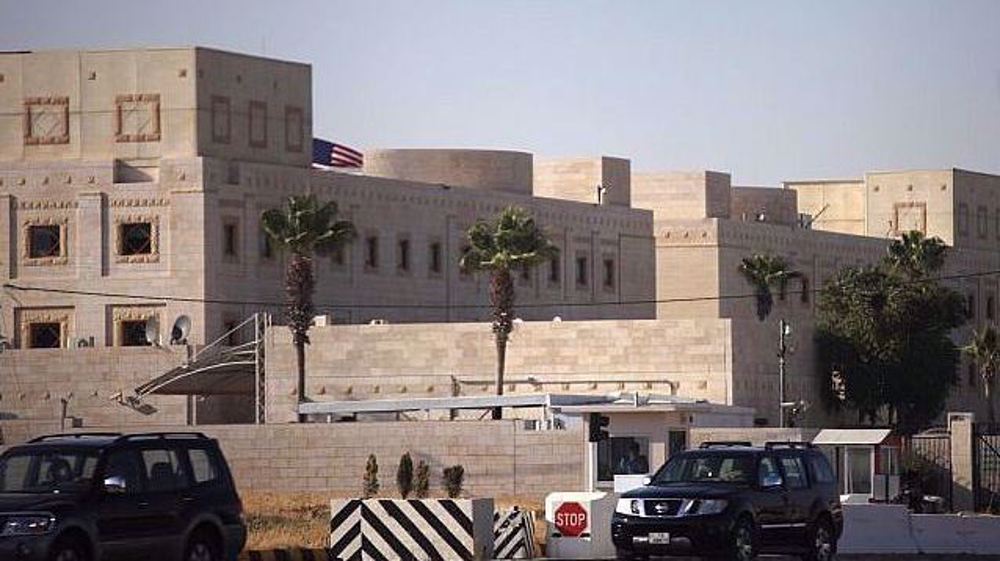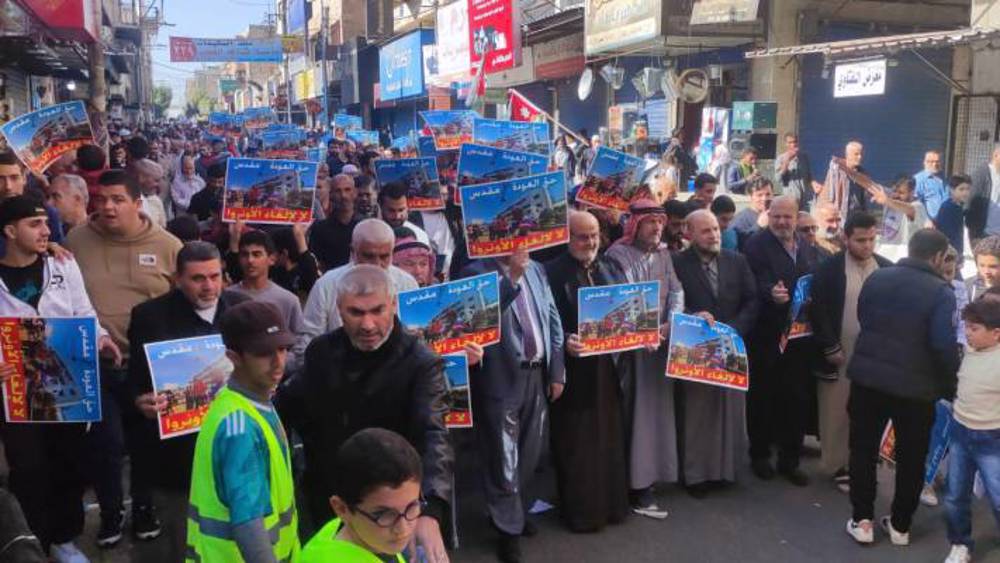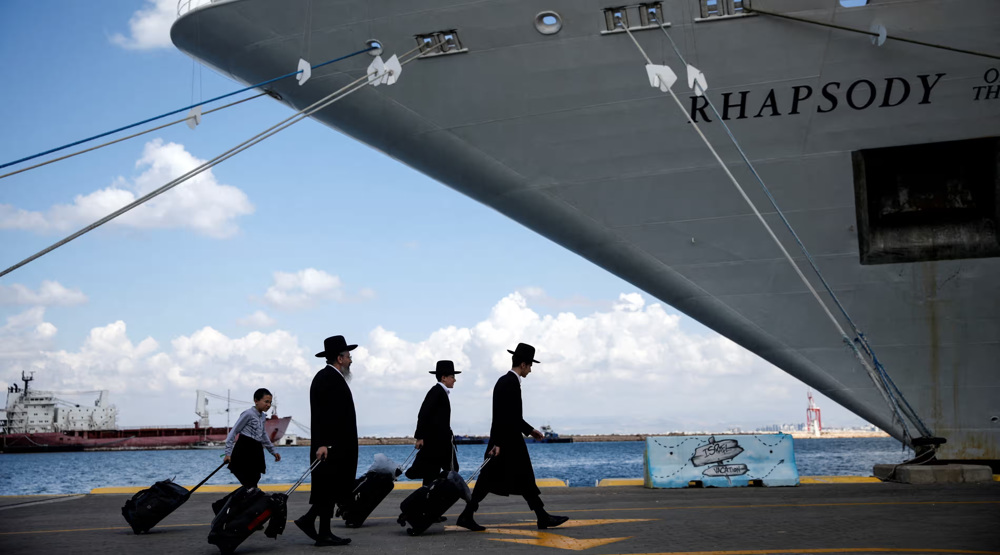Yemen’s Houthis urge ‘general mobilization’ against forces loyal to Hadi
Yemen’s Ansarullah movement has called for a “general mobilization” against forces loyal to the fugitive President Abd Rabbuh Mansour Hadi.
The Yemeni Houthis, in a statement from the movement’s Supreme Revolutionary Committee issued on Saturday, described the motive behind the move as “deteriorating security conditions in the country” and the “war imposed on the Yemeni people on all fronts.”
Over 140 people were killed and more than 350 suffered injuries in three bomb attacks at the Badr mosque in southern Sana’a and the al-Hashoosh mosque in the northern part of the capital on March 20. The ISIL Takfiri terrorist group claimed responsibility for the attacks.

The Houthis also called the move against military institutions loyal to Hadi as a battle against “terrorist forces.”
“The council announces this decision to call the proud sons of the Yemeni people in all regions to unite and support and cooperate with the armed and security forces in confronting terrorist forces,” said the statement, which was carried by the state news agency Saba.
The Ansarullah announcement came after Hadi gave a televised speech challenging the Houthis, who are in control of the capital. He called the movement’s rule in the capital and elsewhere a “coup against constitutional legitimacy.”
Hadi, along with members of Prime Minister Khaled Bahah’s cabinet, stepped down in late January, but the parliament did not approve the resignation. The president fled his home in Sana’a on February 21, after weeks under effective house arrest and went to Aden, Yemen’s second largest city in the south, where he officially withdrew his resignation and highlighted his intention to resume duties. This came weeks after the Houthi fighters took control of Sana’a in September 2014.
Some Persian Gulf Arab states, including Saudi Arabia, have already relocated their embassies from Sana’a to Aden.
Hadi also called on the Ansarullah revolutionaries to relinquish power and leave Sana’a. The Houthis, however, said Hadi had lost his legitimacy as head of state and was being sought as a fugitive from justice.
The Houthi movement played a key role in the 2011 popular uprising that forced the longtime dictator, Ali Abdullah Saleh, to quit after 33 years in power. The revolutionaries say the government has been incapable of properly running the affairs of the country and providing security.
IA/HSN/AS
Hind Rajab Foundation names Israeli war criminals vacationing after Gaza genocide
'This is cruelty, not war,' Pope Francis slams Israel's brutality against Gaza children
IRGC intelligence forces bust Takfiri terrorist team in western Iran
Syria’s de facto new ruler names Asaad al-Shibani as foreign minister
How 8-year-old Lebanese child Fawaz nixed Ben Gurion’s 76-year-old fallacy
VIDEO | 700,000 Cubans rally at US embassy in Havana against trade embargo
Iranian embassy staffer assassinated by terrorists in Damascus
VIDEO | Press TV's News Headlines










 This makes it easy to access the Press TV website
This makes it easy to access the Press TV website